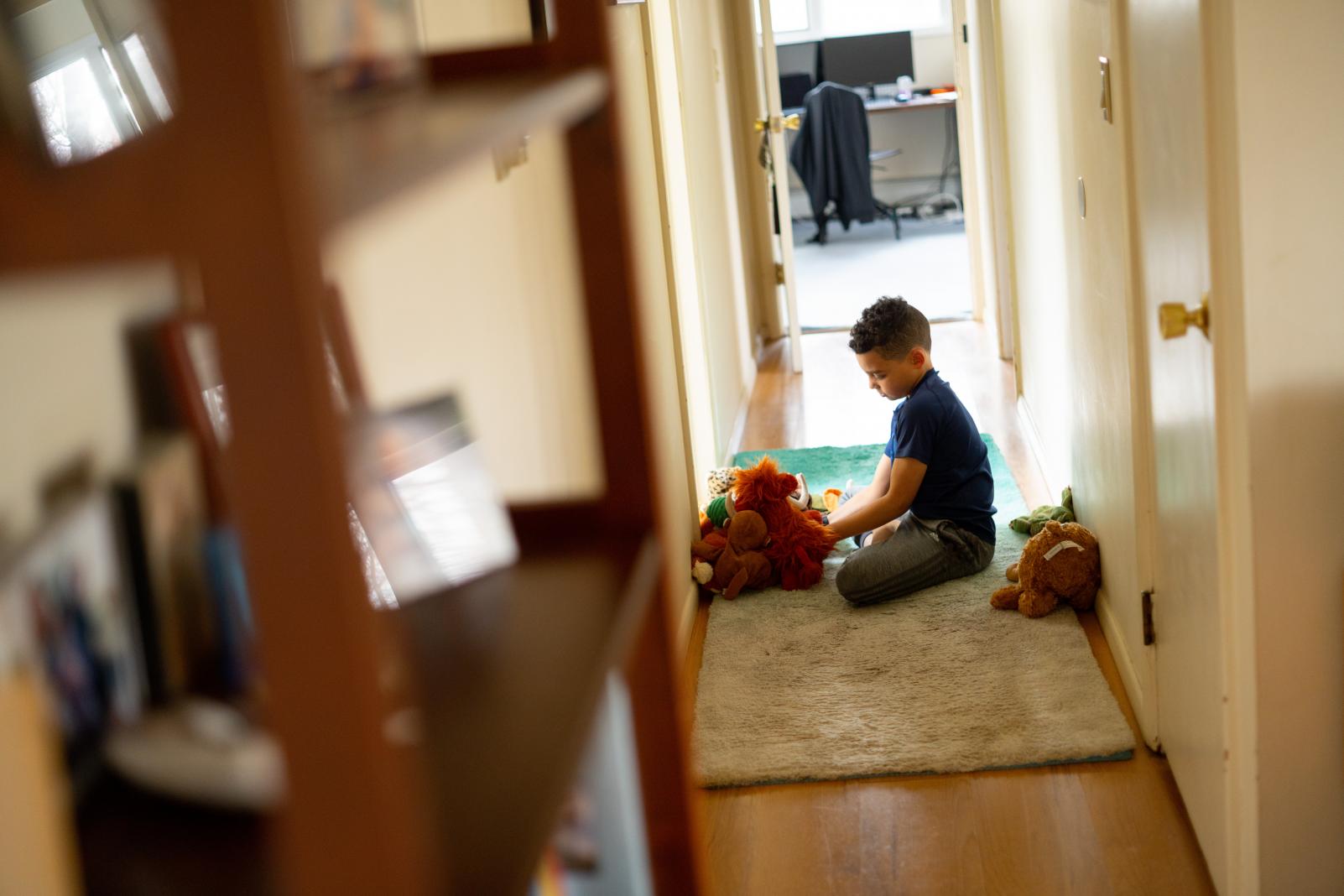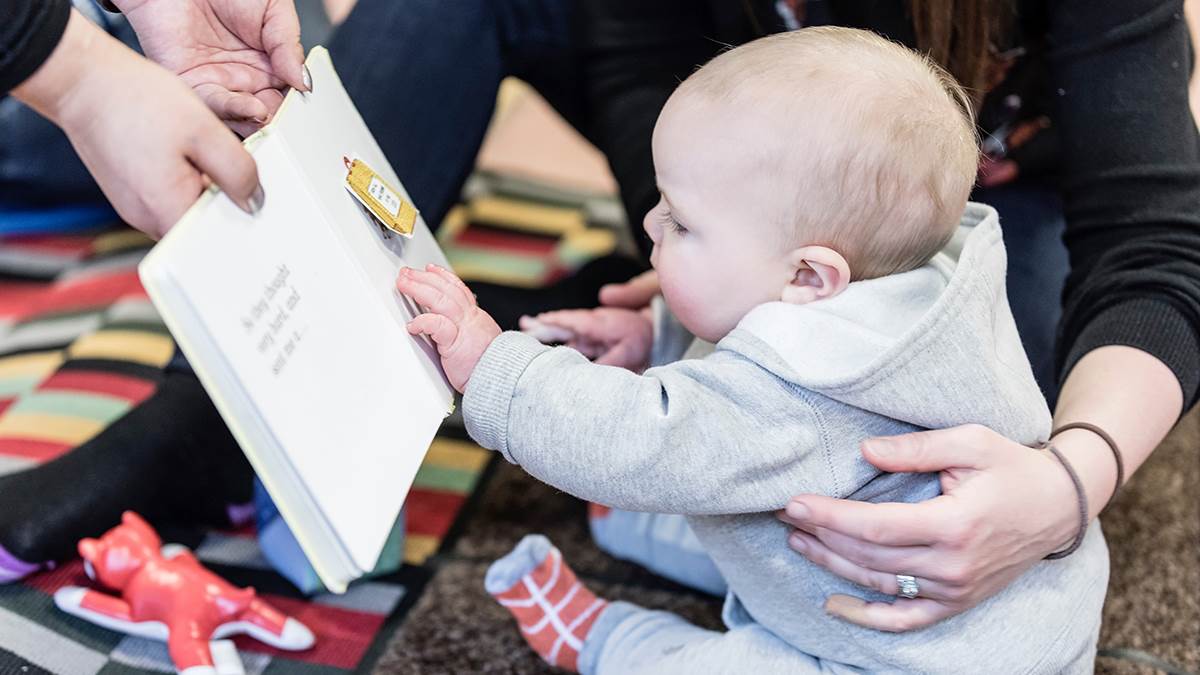Children’s health
Raising a child on your own can be stressful. If you’re a single parent, understand how to cope with the pressure, find support and nurture your child.
If you’re raising a child on your own, you’re in good company. Single-parent families are more common than ever. Know how to manage some of the special challenges single parents experience and what you can do to raise a happy, healthy child.
Common single-parent challenges
Child rearing can be difficult under any circumstances. Without a partner, the stakes are higher. As a single parent, you might have sole responsibility for all aspects of day-to-day child care.
Being a single parent can result in added pressure, stress and fatigue. If you’re too tired or distracted to be emotionally supportive or consistently discipline your child, behavioral problems might arise.
Single-parent families also generally have lower incomes and less access to health care. Juggling work and child care can be financially difficult and socially isolating. You might worry about the lack of a male or female parental role model for your child, too.

Coronavirus (COVID-19) parenting tips
The coronavirus disease (COVID-19) pandemic has upended family life around the world. School closures, working remote, physical distancing — it’s a lot to navigate for anyone, but especially for parents. We teamed up with the Parenting for Lifelong Health initiative to bring parents and caregivers a set of handy tips to help manage this new (temporary) normal.
Talking about COVID-19
Be willing to talk. They will already have heard something. Silence and secrets do not protect our children. Honesty and openness do. Think about how much they will understand. You know them best.
Be open and listen
Allow your child to talk freely. Ask them open questions and find out how much they already know.
Be honest
Always answer their questions truthfully. Think about how old your child is and how much they can understand
Be supportive
Your child may be scared or confused. Give them space to share how they are feeling and let them know you are there for them.

Tips for Comforting a Fearful or Nervous Child
No parent wants to see their child upset, but sometimes it’s hard to know how to react when your child is nervous or afraid. Do you hug them? Do you let them cry it out? There’s so much conflicting advice out there! Next time you’re faced with reacting to your nervous or fearful child, try these tried and true tips.
Do Be There
For many children, your presence will help calm them. Hug them or hold them on your lap. Even holding their hand can help give them a sense of security and comfort.
Don’t Be Too Involved
By telling your child exactly what to do or even what to say in stressful and challenging situations, they are not able to solve problems on their own or learn ways to cope by themselves. This doesn’t mean they’ll never need help, but you should let them try to problem solve first before offering a helpful hand.
Do Get Moving
Physical activity can be calming during times of high stress. Running, doing cartwheels, or playing a game involving gross motor movements can help distract them from their worry or fear.
Don’t Avoid Activities
When children constantly avoid situations that make them afraid or uncomfortable, their fears never go away. Try easing them into activities that make them nervous. You don’t want to expect too much at once because it can take them a while to conquer a fear. For example, if your child has a difficult time playing with other children at school, set up a playdate at home so they can focus on feeling comfortable around one child before being surrounded by all of their peers on the playground. By slowly helping them adapt, you can ease their fear and prepare them to cope on their own when they’re older.

Reading with your child
Sharing a book with a child is fun! It’s a time for closeness, laughing and talking together – and it can also give children a flying start in life and help them become lifelong readers
It’s never too early to start
It’s never too early to start sharing books with them – they might not understand the words, but they will love cuddling up, hearing your voice, and looking at the pictures.
Talk to your bump. Your baby can hear sounds as early as 18 weeks and talking regularly to your bump will help them recognise your voice and be comforted listening to you even before they’re born.
Give black and white books a go when they’re little. You might receive the Bookstart Newborn pack, which includes black and white images for you to share. These are perfect in the early days when their eyes are still developing.
In England and Wales, ask your health visitor or library about where you can pick up your free Bookstart Baby pack. It includes books, tips and advice to help you get started.
Join your local library. Libraries are full of great advice and recommendations, and you’ll have a new supply of books to enjoy. Your library may also host Rhymetimes and other sessions for little ones – you’ll be able to have fun and meet other families, too.
Get other family members involved. Storytime is something that everyone can enjoy, and it’s a great way to bond. For example, there are lots of books about the relationship between grandparents and grandchildren – maybe your little one would enjoy sharing one of those stories with their own nanny and granddad?
As your child gets a bit older
Sharing picture books can be a lot of fun – but don’t worry if your child gets distracted, chews the book or wanders off… that’s perfectly normal! Don’t worry if you don’t have a lot of time in your busy day, either – just a few minutes can make a huge difference
Here are some more tips to help you enjoy storytime together:
Ask your child to choose what they’d like to read. They’ll feel more interested in the story if they’ve picked it out themselves. (And don’t worry if they keep returning to the same story, either!)
If you can, turn off the TV, radio and computer. It’s easier for both of you to enjoy the story without any other distractions.
Sit close together. You could encourage your child to hold the book themselves and turn the pages, too.
Take a look at the pictures. You don’t just have to read the words on the page. Maybe there’s something funny in the pictures that you can giggle about together, or perhaps your child enjoys guessing what will happen next.
Ask questions and talk about the book. Picture books can be a great way to talk through your child’s fears and worries, or to help them deal with their emotions. Give them space to talk, and ask how they feel about the situations in the story.
Have fun! There’s no right or wrong way to share a story – as long as you and your child are having fun. Don’t be afraid to act out situations or use funny voices… your little ones will love it!

HELPFUL TIPS FOR NEW PARENTS
You’ve just arrived home from the hospital. You had trouble strapping Junior into the brand-new, state-of-the-art car seat your mother insisted was the best, and you feel like you’ve just been hit by a semi. Your insides hurt in places you didn’t know existed, and your head might explode if your partner asks if you feel okay one more time. Where are the moments of serenity when Junior is supposed to be sleeping? When do you get some shut-eye yourself?
Don’t be too hard on yourself. If you can’t immediately drop back to your pre-baby weight, it’s because your body needs time to adjust. The key is to allow yourself time to get back on your feet. Your number one priority is taking care of baby, and the only way to do this is to take care of yourself. In those few-and-far-between moments of peace, you often have to decide between eating and sleeping. Eat nutritious foods that will give you energy, or take time to meditate in silence. Taking care of yourself will provide you with a healthy mindset to take on tomorrow
Sleep in shifts. Sleep deprivation will lead you to borderline insanity. You’ve heard every new parent complain of never being able to sleep, and now it’s your turn to live through it. You can tackle the issue of lack of sleep by tag-teaming with your partner, and splitting the responsibility of waking up with the baby. If you’re a single parent, try to sleep wherever the baby is to maximize personal sleep.
Don’t refuse help. It’s in a lot of parents’ natures to feel incompetent if they have to ask others for help. They fear this makes them bad parents, or unprepared to cope with a baby. The phrase “it takes a village” didn’t come out of thin air – allow yourself to accept help when it’s offered. The people who love you truly want to make your life easier, not rub it in your face that you can’t do it alone. Allow your sister to come do the dishes. Accept hot meals cooked by your coworkers. Let mom rock the baby while you snatch a quick nap. These are the things that can keep you bright-eyed and bushy-tailed in moments when help isn’t available.